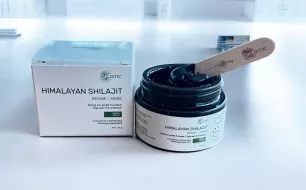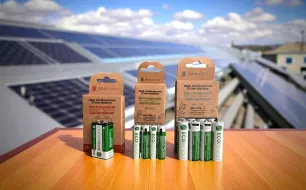Activated carbon filters have become an essential tool in the fight against water pollution, particularly regarding per- and polyfluoroalkyl substances (PFAS), often referred to as "forever chemicals". These substances, omnipresent in the environment, pose serious risks to human health and ecosystems. This article explores the effectiveness of activated carbon filters in reducing exposure to PFAS and praises their merits in protecting our health and the planet.
PFAS: The "Forever Chemicals"
The PFAS, or per- and polyfluoroalkyl substances, make up a group of over 4,700 chemical compounds that have been used for decades in many industrial and commercial applications.
They can be found in products ranging from non-stick cookware to food packaging to fire-fighting foams.
Their popularity is due to their exceptional resistance to water, oil, and heat. However, this same resistance makes them extremely persistent in the environment, earning them the unsettling nickname of "forever chemicals".
An Omnipresent and Harmful Presence
Today, PFAS are found everywhere: in rivers, soils, air, and even in our blood.
Their persistence and toxicity are causing growing concerns among scientists and regulators. Indeed, prolonged exposure to PFAS is associated with various health problems, including endocrine disruptions, cancers, and adverse effects on the immune system. Contamination of drinking water by PFAS is particularly worrying, as it represents a direct and continuous exposure route for millions of people worldwide.
Activated Carbon Filters: An Effective Solution Against PFAS
Faced with this major environmental and health challenge, activated carbon filters have emerged as an effective and accessible solution to reduce PFAS concentration in drinking water.
Activated carbon is a porous material with exceptional adsorbing properties, capable of trapping a wide range of contaminants, including PFAS.
These filters work by adsorbing PFAS molecules onto the surface of the carbon, thus removing them from the water before it is consumed.
Comparison with Other Filtration Technologies
The effectiveness of activated carbon filters in removing PFAS from drinking water has been widely demonstrated in many studies.
Compared to other water treatment technologies, such as reverse osmosis or nanofiltration, activated carbon filters offer a less expensive and more accessible alternative for households and small communities.
Moreover, they are relatively easy to use and maintain, making them particularly suitable for domestic solutions.
All Activated Carbon Filters are not Created Equal
It is important to note that not all activated carbon filters are equal. Their ability to adsorb PFAS depends on several factors, including the quality of the carbon, the water's contact time with the carbon, and the initial PFAS concentration.
To maximize their effectiveness, it is crucial to choose quality filters and follow the manufacturer's recommendations for regular replacement.
Additional Benefits for Health and the Environment
In addition to their effectiveness against PFAS, activated carbon filters offer other environmental and health benefits.
They are capable of reducing a wide range of contaminants, including heavy metals, pesticides, and volatile organic compounds, thus improving the overall quality of drinking water.
By using activated carbon filters, consumers can also reduce their dependence on bottled water, thus contributing to the reduction of plastic waste and the preservation of natural resources.
A Commitment to Protecting the Environment and Public Health
Adopting activated carbon filters as a solution against PFAS pollution is part of a broader effort to protect the environment and public health. As regulators gradually become aware of the scale of the PFAS problem and introduce increasingly strict standards for their control, activated carbon filters represent a proactive measure that everyone can take to protect themselves and their families.
Conclusion: A Proven Technology for a Healthier Future
In conclusion, activated carbon filters are not only a proven and effective technology for combating PFAS pollution, but they also embody a pragmatic and accessible approach to improving the quality of drinking water at home.
In a world where chemical pollution has become an omnipresent threat, these filters offer a glimmer of hope, allowing everyone to participate in the fight against "forever chemicals" and to contribute to a healthier and more sustainable future.



